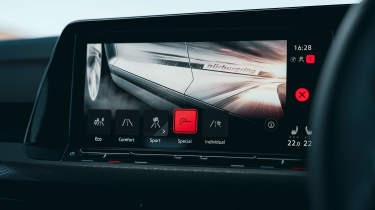Buttons could replace touch controls in cars thanks to new Euro NCAP tests
New Euro NCAP safety tests in 2026 will encourage manufacturers to bring back physical in-car controls. Could this be the end of annoying touchscreens?

Modern cars are cleaner, faster, more capable and more efficient than ever, but if there’s one area where they’ve regressed compared to old-generation models, it’s in terms of cabin ergonomics and usability. In the interests of cost-saving and minimalist design, manufacturers have moved towards touch-based interfaces with fewer physical controls, but that trend might be reversed from 2026 thanks to impending Euro NCAP regulations.
From 2026, new tests will determine how easily basic car functions can be accessed, with a proposed scoring system allocating 5 out of a total of 100 points for these criteria. ‘Euro NCAP will indeed incentivise OEMs to have physical, easy-to-use, and tactile controls of the main driving features like wipers, warning lights, and indicators,’ said Euro NCAP Technical Director Richard Schram.
By penalising cars that rely heavily on screens and touch controls to access these key functions, the hope is that manufacturers will respond by reinstating more intuitive cabin layouts to reduce potentially dangerous distractions while driving.
As you can imagine, some brands will be hit harder than others by the new rating system. Teslas, for example, embed the vast majority of their major controls in touchscreens (even as far as the glovebox opening switch). Volkswagen continues to insist on putting many vital controls behind a touch screen, though it has at least reverted to physical buttons for the wheel controls on some models. Skoda on the other hand, has already brought back knobs and buttons for volume and temperature controls with its latest Superb and Kodiaq models.
At the higher end, Ferrari is another brand that might be prompted to change tack. Its latest generation cars have a HMI that’s almost entirely touch-based, with haptic keys on the steering wheel, touch controls for climate settings and indicator buttons rather than stalks. There’s already talk of its future models reverting back to buttons for some of these. The F80, its latest hypercar, has already swapped out the haptics for physical buttons.




